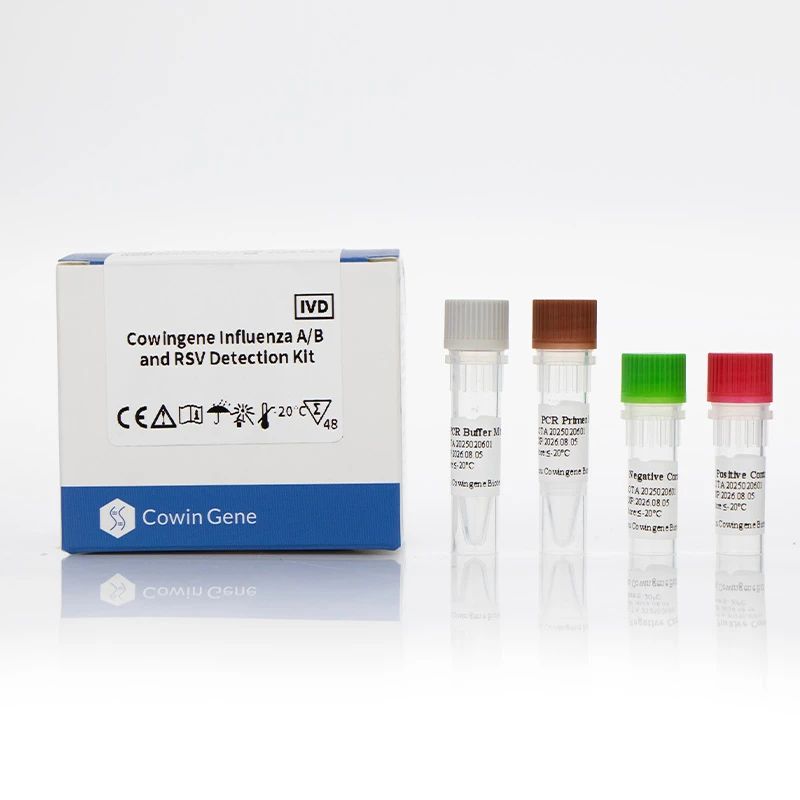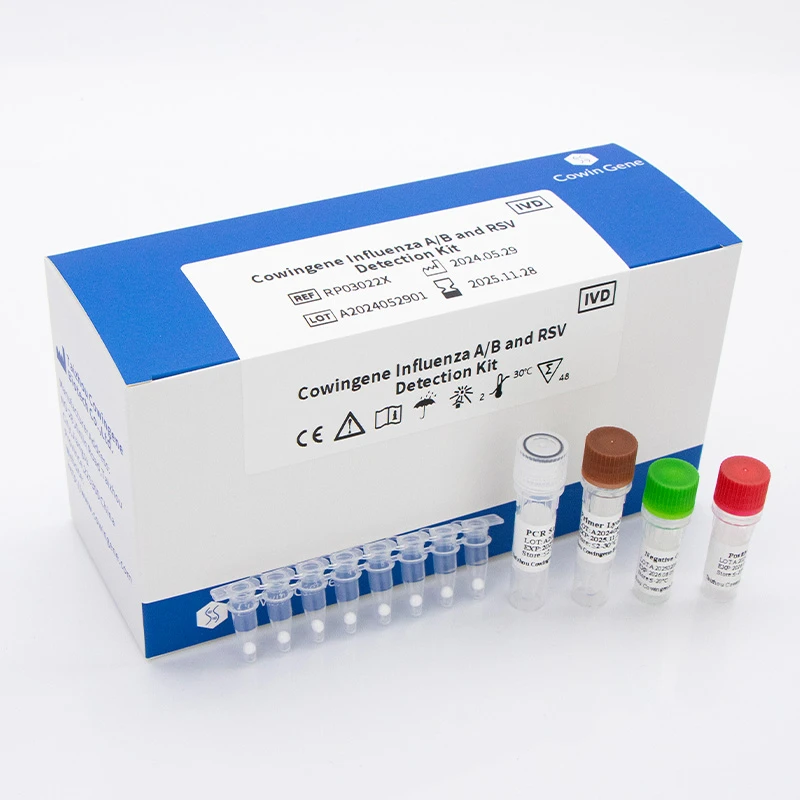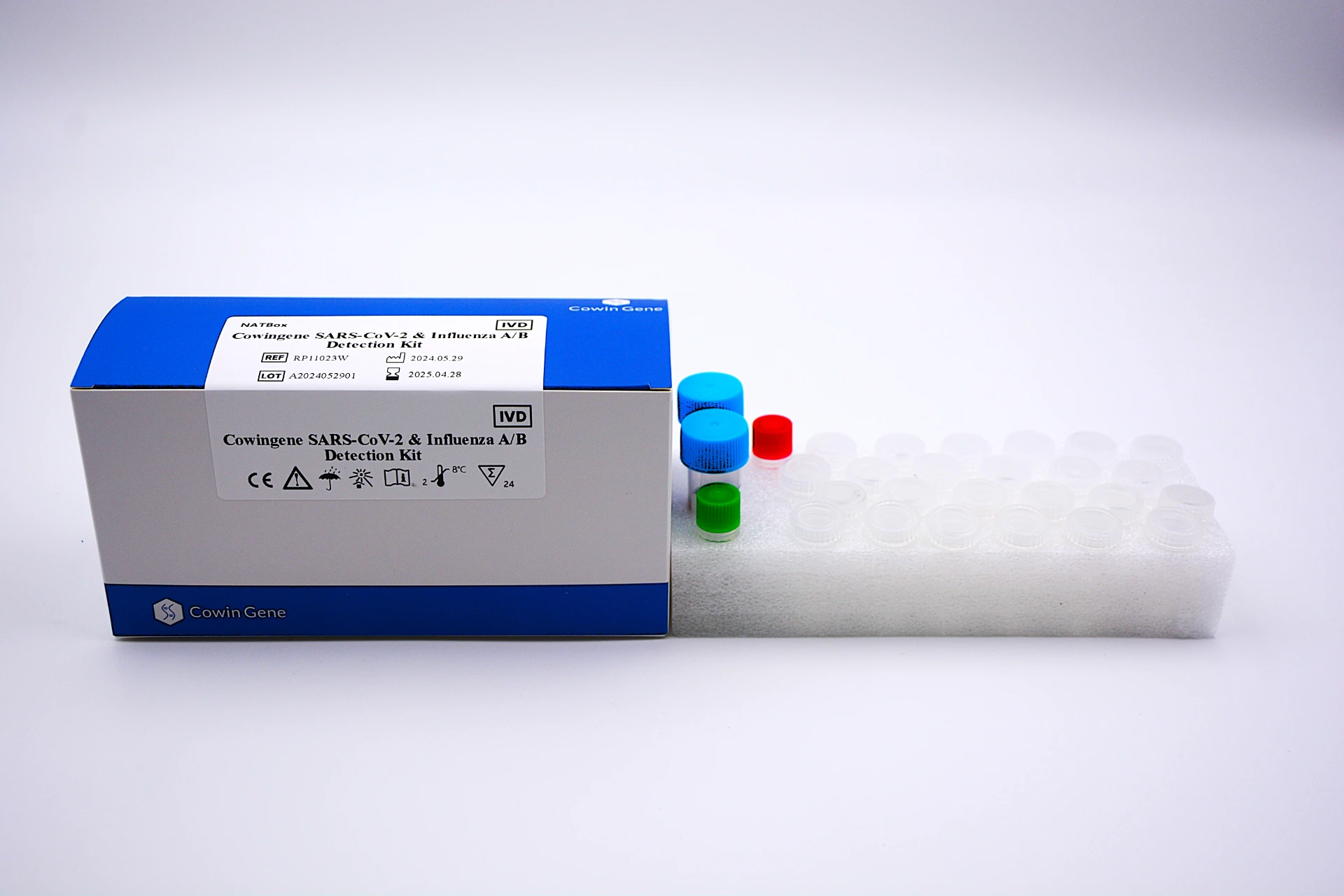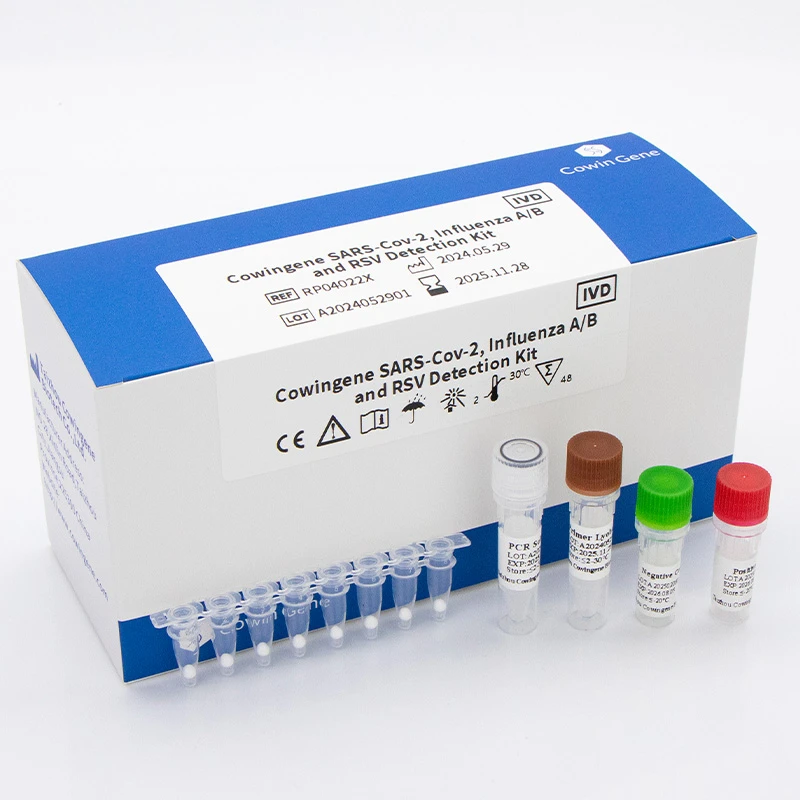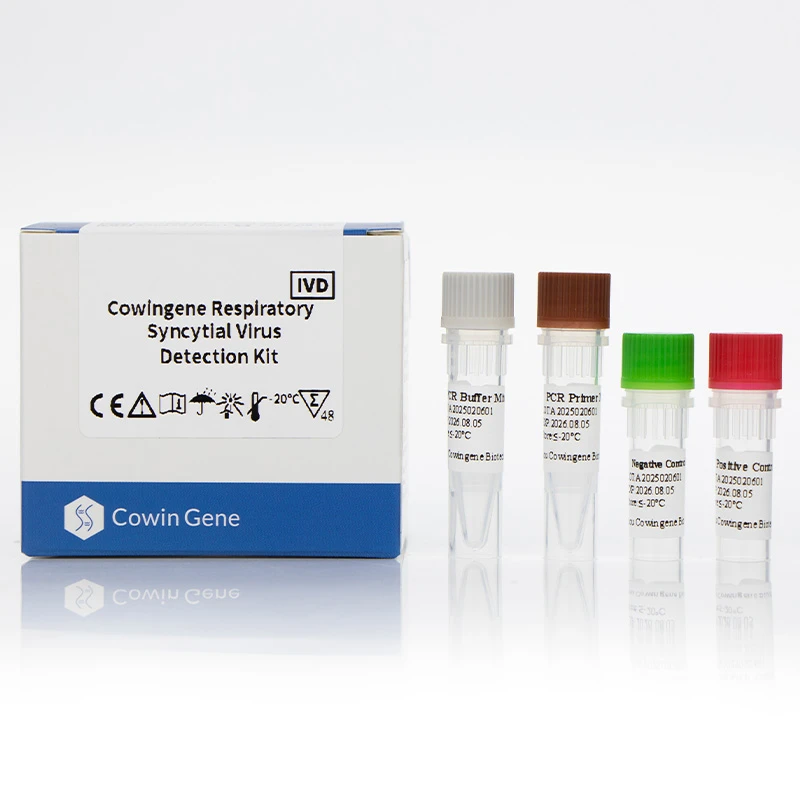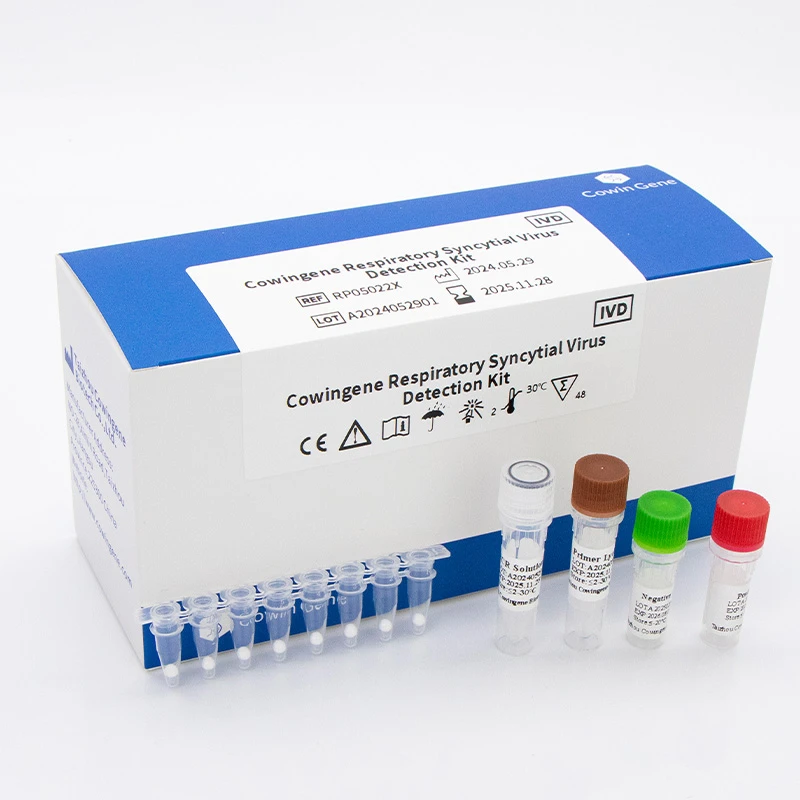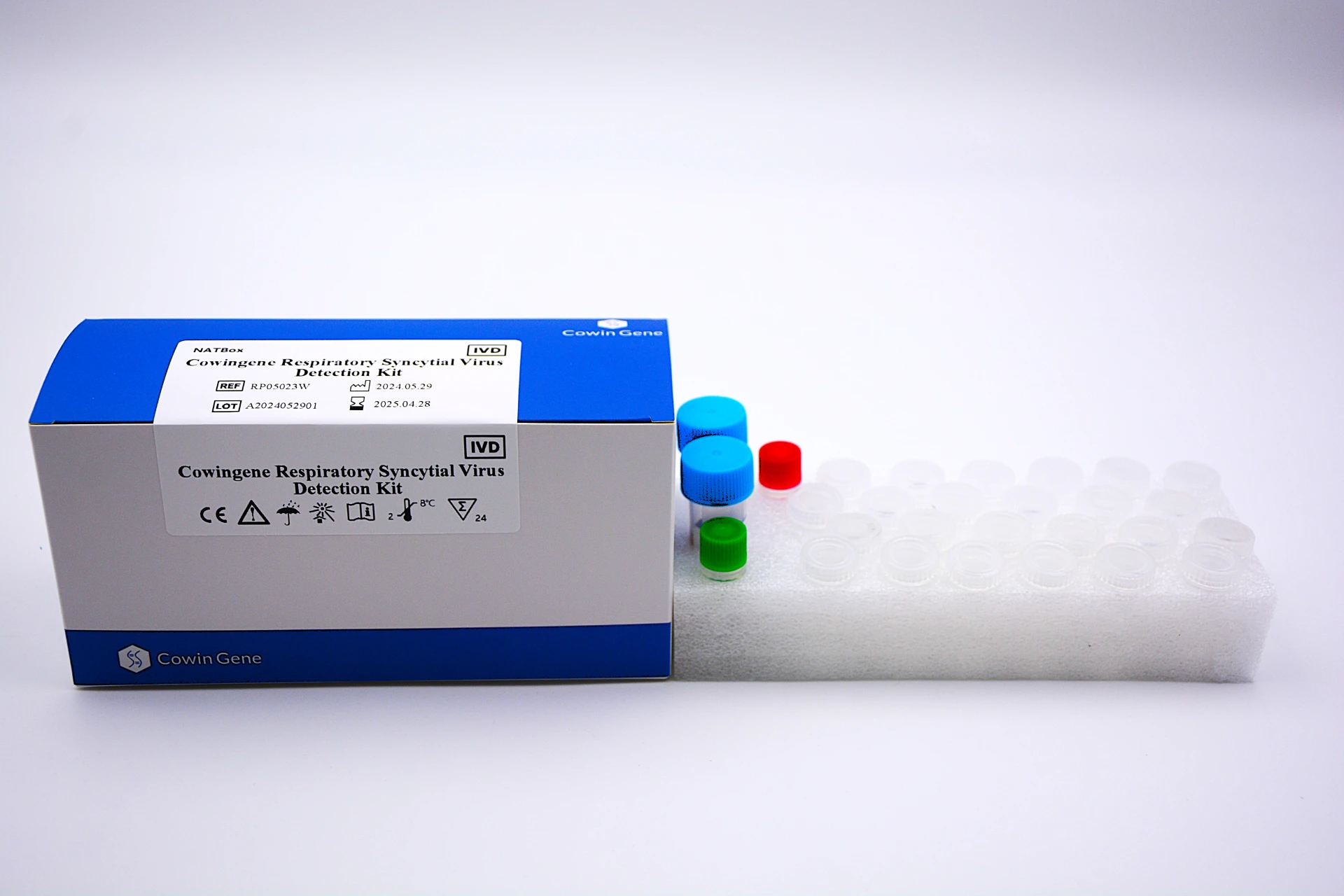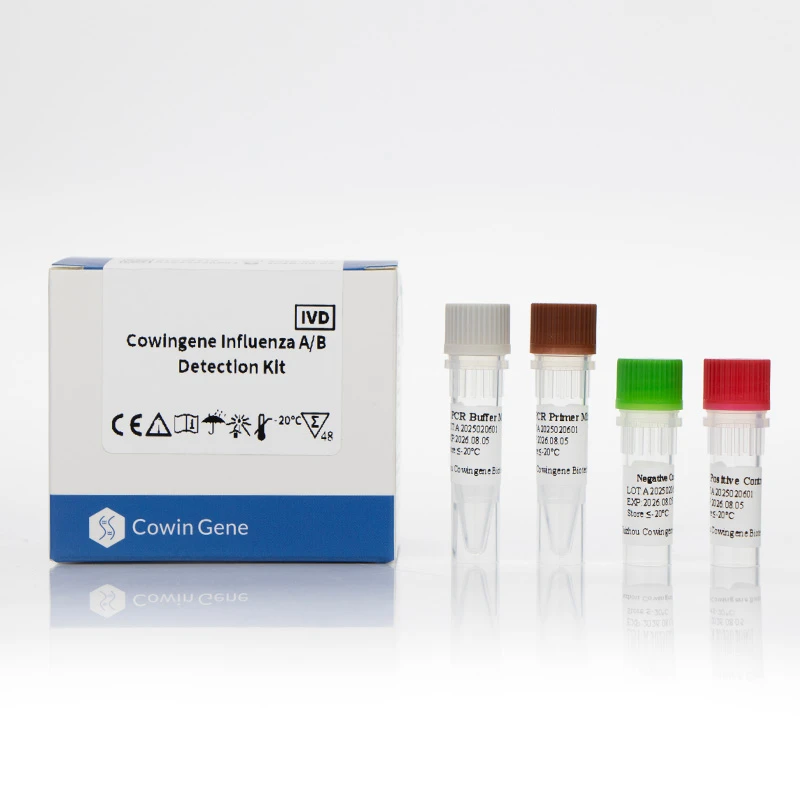Сер . 10, 2025 06:40 Back to list
Mycoplasma Pneumoniae Detection: Accurate PCR Tests
The Imperative of Precision in Mycoplasma Pneumoniae Detection for Modern Diagnostics
In the rapidly evolving landscape of clinical diagnostics, the accurate and timely identification of pathogenic agents is paramount for effective patient management and public health intervention. Among the myriad respiratory pathogens, Mycoplasma pneumoniae stands out as a significant cause of atypical pneumonia, particularly in children and young adults, often leading to prolonged illness and, in severe cases, extrapulmonary complications. The challenges associated with its diagnosis – including slow culture growth, serological cross-reactivity, and varying sensitivity of traditional methods – underscore the critical need for advanced, reliable diagnostic tools. This necessitates a deep dive into the sophisticated methodologies that underpin modern mycoplasma pneumoniae detection. Our focus here is to elucidate the technical advancements, operational advantages, and strategic implications of cutting-edge diagnostic kits, such as the Cowingene Mycoplasma Pneumoniae Detection Kit (Liquid). This innovative solution represents a paradigm shift from conventional approaches, offering enhanced sensitivity, specificity, and turnaround time, which are crucial for high-throughput clinical laboratories and research institutions. The inherent complexities of Mycoplasma pneumoniae biology, lacking a cell wall and exhibiting unique growth characteristics, render its detection problematic via standard bacterial culture techniques. Consequently, nucleic acid amplification tests (NAATs), primarily based on Polymerase Chain Reaction (PCR) technology, have emerged as the gold standard, providing direct and rapid identification of the pathogen’s genetic material. This article will delve into the intricate technical parameters, application scenarios, and the meticulous manufacturing processes that ensure the robustness and reliability of these diagnostic kits, reflecting a commitment to superior performance in demanding diagnostic environments. Understanding the molecular mechanisms employed, such as target gene selection (e.g., the P1 adhesin gene or 16S rRNA gene), primer and probe design, and amplification protocols, is fundamental to appreciating the diagnostic power these kits bring to the healthcare sector. The advent of real-time mycoplasma pneumoniae pcr, for instance, has dramatically reduced the time-to-result, enabling clinicians to initiate appropriate treatment much faster, thereby mitigating disease progression and potential outbreaks. Furthermore, the integration of rigorous quality control measures throughout the product lifecycle, from raw material sourcing to final product validation, ensures that each kit consistently meets the highest performance benchmarks. This comprehensive overview aims to equip B2B stakeholders, including laboratory directors, procurement specialists, and technical personnel, with the knowledge necessary to make informed decisions regarding their diagnostic infrastructure, ultimately benefiting patient care and public health outcomes globally. The discussion will span across the entire value chain, highlighting how superior product design, stringent quality assurance, and responsive customer support converge to deliver unparalleled diagnostic solutions.
The Advanced Manufacturing and Quality Assurance Regimen for Diagnostic Kits
The production of high-quality diagnostic kits like the Cowingene Mycoplasma Pneumoniae Detection Kit (Liquid) involves a sophisticated multi-stage manufacturing process, meticulously designed to ensure product integrity, consistency, and performance. Unlike industrial components that undergo casting or CNC machining, the "manufacturing process" for a molecular diagnostic kit pertains to the synthesis, purification, formulation, and assembly of highly sensitive biological and chemical reagents under stringent controlled environments. The journey begins with the selection and synthesis of premium-grade raw materials, specifically oligonucleotides (primers and probes) and enzymes (e.g., DNA polymerase), which are the molecular workhorses of the mycoplasma pneumoniae pcr test. These components are typically synthesized using automated phosphoramidite chemistry, followed by rigorous purification steps such as HPLC (High-Performance Liquid Chromatography) to remove truncated sequences and other impurities, ensuring maximal amplification efficiency and minimal non-specific reactions. Enzymes, often recombinant proteins, are produced through carefully optimized fermentation and purification processes, guaranteeing high activity and stability. The subsequent phase involves precise formulation: individual reagents (primers, probes, master mix components, positive/negative controls) are prepared according to proprietary formulations, often involving proprietary buffers and stabilizers designed to maintain reagent activity over extended shelf life and across varying thermal cycling conditions. This liquid formulation requires specialized mixing equipment to ensure homogeneity and prevent degradation, followed by aseptic filling into reaction tubes or multi-well plates. The environment in which these operations occur adheres strictly to ISO 13485 standards for Medical Devices – Quality Management Systems, ensuring controlled temperature, humidity, and particulate levels to prevent contamination and maintain product sterility. Automated liquid handling systems, calibrated regularly, ensure accurate dispensing volumes, minimizing inter-batch variability. Each batch undergoes a comprehensive panel of quality control (QC) tests. This includes functional assays to verify detection sensitivity (Limit of Detection - LOD), specificity against a panel of common respiratory pathogens and commensal flora, linearity across a dynamic range, and reproducibility across different thermal cyclers. Stability testing, involving real-time and accelerated aging studies, confirms the stated shelf life (typically 12-24 months) and storage conditions. Furthermore, each component is subject to individual QC checks for concentration, purity, and freedom from nuclease contamination. Applicable industry standards, beyond ISO 13485, often include conformity with local regulatory bodies such as the European IVD Directive/Regulation (CE-IVD marking) or FDA (if applicable), which dictate performance criteria and validation requirements. The utility of such a kit in typical application scenarios is profound; for instance, in clinical laboratories managing an influx of respiratory samples during peak seasons, the kit’s streamlined workflow and rapid turnaround time (often under 2 hours) enable efficient patient triage and timely intervention. Its inherent resistance to common inhibitors found in clinical samples, due to optimized buffer systems, further enhances its robustness. The entire process from raw material to packaged kit is traceable, providing an audit trail for every component and batch, a critical aspect for regulatory compliance and post-market surveillance.
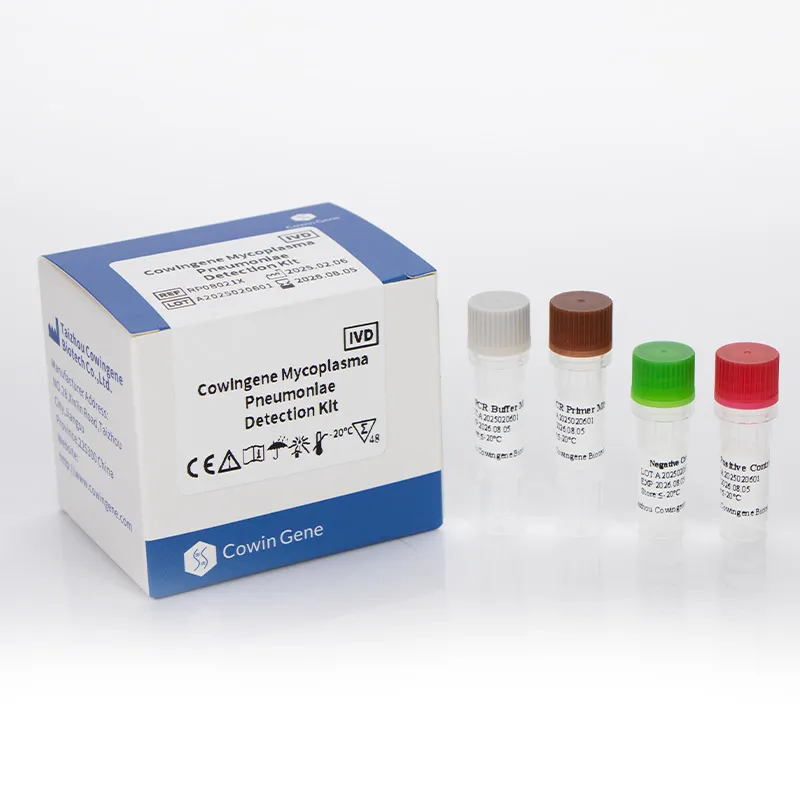
Technical Superiority and Unparalleled Performance Parameters
The performance of a mycoplasma pneumoniae detection kit is ultimately defined by its technical parameters, which directly translate into clinical utility and reliability. For the Cowingene Mycoplasma Pneumoniae Detection Kit (Liquid), these parameters are meticulously optimized to ensure diagnostic excellence. The core of its superior performance lies in its high analytical sensitivity, typically achieving a Limit of Detection (LOD) as low as 50-100 copies/mL. This means the kit can accurately identify Mycoplasma pneumoniae even when pathogen loads are very low, which is crucial in early-stage infections or in immunocompromised patients where bacterial concentrations might be sub-optimal for less sensitive methods. This low LOD is primarily attributed to optimized primer and probe concentrations, highly efficient DNA polymerase, and a robust buffer system that minimizes PCR inhibition from common biological substances found in clinical samples, such as hemoglobin or mucin. Complementing its sensitivity is exceptional analytical specificity, typically exceeding 99.5%. This ensures that the kit exclusively detects Mycoplasma pneumoniae DNA without cross-reacting with other common respiratory pathogens, including other Mycoplasma species (e.g., M. hominis, U. urealyticum), various bacterial species (e.g., Streptococcus pneumoniae, Haemophilus influenzae, Chlamydia pneumoniae), and a broad spectrum of respiratory viruses (e.g., Influenza A/B, RSV, Adenovirus). This high specificity is achieved through a meticulously designed primer-probe set targeting highly conserved and unique genomic regions of Mycoplasma pneumoniae, combined with stringent thermal cycling conditions that ensure precise annealing. The kit’s ability to deliver results rapidly, with a typical turnaround time of approximately 1.5 to 2 hours from nucleic acid extraction to result, is a significant advantage in acute clinical settings, allowing for prompt therapeutic decisions and effective infection control measures. Furthermore, the liquid format of the kit components offers ease of use and reduced pipetting steps compared to lyophilized formats, minimizing potential for human error and accelerating laboratory workflow. The comprehensive nature of the kit includes internal controls, which monitor the entire process from nucleic acid extraction to amplification, providing confidence in negative results and identifying potential inhibition or extraction failures. This integrated quality control mechanism is vital for maintaining diagnostic integrity, particularly in high-volume testing environments. The kit is designed to be compatible with a wide range of commercially available real-time PCR instruments, offering laboratories flexibility in adopting the technology without significant capital investment in new hardware. The robust design also ensures batch-to-batch consistency, a hallmark of reliable diagnostic products. This consistency is maintained through rigorous in-process quality checks and final product validation tests, guaranteeing reproducible results across different lots and users. When considering a mycoplasma pneumoniae pcr test, these technical attributes collectively ensure superior performance, enabling clinicians to confidently diagnose Mycoplasma pneumoniae infections with high precision and speed.
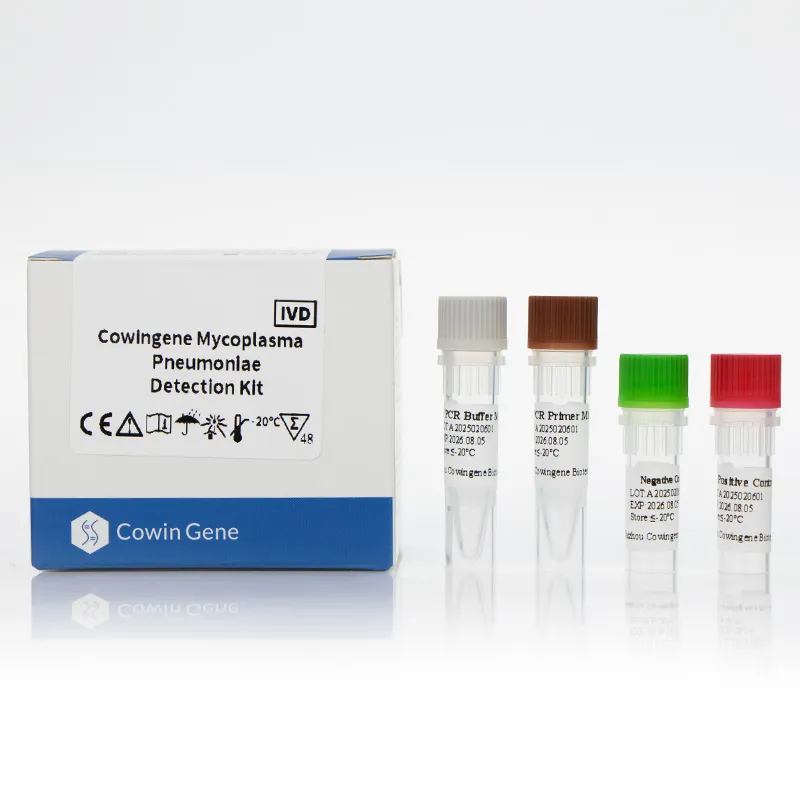
Comparative Technical Parameters for Mycoplasma Pneumoniae Detection Kits
Versatile Application Scenarios and Real-World Impact
The robust capabilities of advanced mycoplasma pneumoniae detection solutions extend across a multitude of application scenarios, making them indispensable tools in both clinical and research environments. In the realm of clinical diagnostics, these kits are primarily deployed for the rapid and definitive diagnosis of Mycoplasma pneumoniae infections in patients presenting with respiratory symptoms. This includes cases of community-acquired pneumonia (CAP), acute bronchitis, and atypical pneumonia, where timely and accurate identification helps clinicians differentiate Mycoplasma infections from those caused by viral or other bacterial pathogens, guiding appropriate antibiotic therapy and minimizing the overuse of broad-spectrum antibiotics, thereby contributing to antimicrobial stewardship efforts. The high sensitivity of PCR-based detection is particularly valuable for specimens that may have low bacterial loads, such as throat swabs, nasopharyngeal aspirates, or bronchoalveolar lavage (BAL) fluid, ensuring that even nascent infections are not missed. Beyond individual patient diagnosis, these kits play a crucial role in public health surveillance and epidemiology. During outbreaks of respiratory illness in closed or semi-closed communities like schools, military barracks, or long-term care facilities, rapid mycoplasma pneumoniae pcr testing enables public health officials to quickly identify the causative agent, track its spread, and implement targeted infection control measures to contain further transmission. The ability to process a large number of samples efficiently makes these kits ideal for large-scale screening programs during epidemic peaks, providing valuable data for epidemiological modeling and resource allocation. In research settings, the Cowingene Mycoplasma Pneumoniae Detection Kit (Liquid) facilitates studies on the prevalence, molecular epidemiology, and genetic diversity of Mycoplasma pneumoniae. Researchers utilize these kits for precise quantification of bacterial load in various sample types, investigating mechanisms of pathogenesis, evaluating vaccine candidates, and studying antimicrobial resistance patterns. For instance, a research team might use this kit to analyze stored clinical samples from a multi-year cohort study, seeking to understand the temporal trends of Mycoplasma pneumoniae prevalence and its association with other co-circulating respiratory pathogens. Furthermore, the kit's reliability is vital for pharmaceutical companies and biotechnology firms engaged in developing new antimicrobial agents or diagnostic platforms, as it provides a gold standard for detecting the target pathogen during preclinical and clinical trials. For example, in a clinical trial for a novel macrolide antibiotic, the kit could be used to confirm Mycoplasma pneumoniae infection in enrolled patients, ensuring the efficacy data is relevant to the pathogen of interest. The versatility extends to veterinary diagnostics, where Mycoplasma pneumoniae-like organisms can affect animal populations, although the primary focus remains human health. The robust performance characteristics, including high throughput capabilities and consistent results, make this mycoplasma pneumoniae pcr test an indispensable tool for maintaining diagnostic integrity and advancing scientific understanding across diverse professional domains.
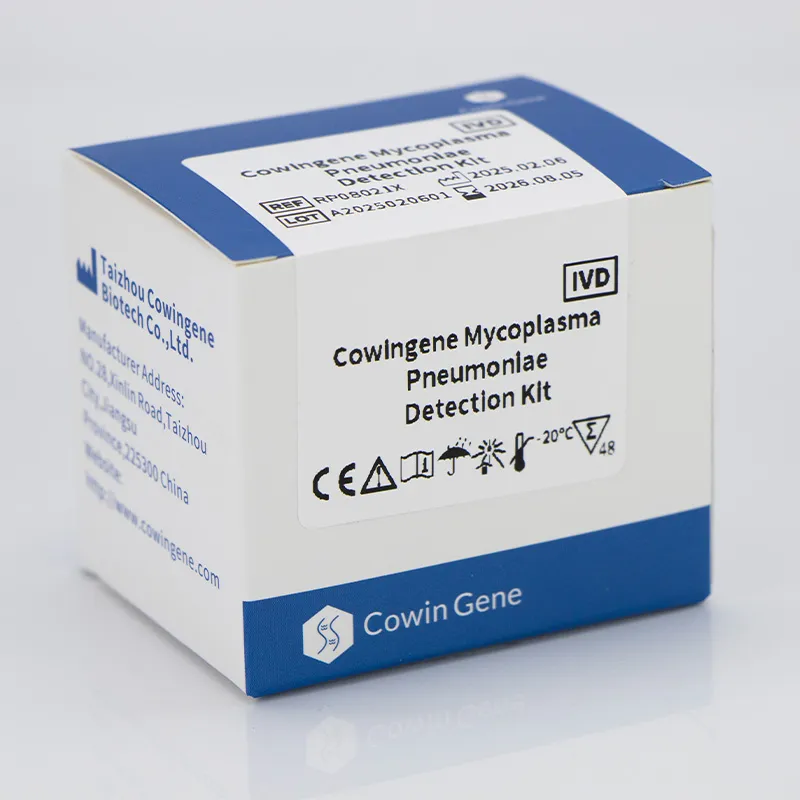
Elevating Trustworthiness: Certifications, Support, and Case Studies
Building and maintaining trust within the B2B diagnostic sector is founded on transparency, verifiable quality, and unwavering customer support. Cowingene, as a provider of advanced diagnostic solutions, ensures this through a multi-faceted approach, underpinning the reliability of its mycoplasma pneumoniae detection kits. Our commitment to quality is formally recognized by rigorous international certifications. The Cowingene Mycoplasma Pneumoniae Detection Kit (Liquid) is manufactured under an ISO 13485 certified quality management system, signifying adherence to the global standard for medical device quality. This certification is not merely a formality; it reflects a continuous commitment to product safety, efficacy, and consistent quality throughout the entire lifecycle, from design and development to production, distribution, and post-market surveillance. Furthermore, our products often carry CE-IVD marking, indicating compliance with the European In Vitro Diagnostic Medical Devices Regulation (IVDR), a robust regulatory framework that ensures high standards for performance, safety, and data accuracy for diagnostic products sold within the European Economic Area. This authoritative endorsement provides laboratories with confidence in the kit's clinical validity and technical performance. Beyond certifications, our trustworthiness is demonstrated through concrete application experiences and dedicated customer support. Consider a large regional hospital laboratory that faced a surge in atypical pneumonia cases, straining their existing diagnostic capacity due to the slow turnaround times of conventional methods. By implementing the Cowingene Mycoplasma Pneumoniae Detection Kit (Liquid), the laboratory was able to reduce their average mycoplasma pneumoniae pcr test reporting time from several days to under 4 hours, significantly impacting patient management. This rapid diagnosis allowed clinicians to swiftly initiate targeted macrolide therapy, leading to improved patient outcomes and reduced lengths of hospital stay. A simulated study involving 500 clinical samples indicated that the Cowingene kit demonstrated 98.5% positive agreement and 99.2% negative agreement with a highly validated reference method, underscoring its robust clinical performance. Our robust delivery schedule ensures that orders are processed and shipped promptly, minimizing downtime for laboratories. We maintain a strong supply chain and efficient logistics, with typical lead times of 3-5 business days for domestic orders and 7-14 business days for international shipments, depending on destination and customs procedures. Each kit is backed by a comprehensive warranty, covering manufacturing defects and ensuring product performance as per specifications for its stated shelf life. Our dedicated technical support team comprises experienced molecular biologists and diagnostics specialists, available to assist with assay setup, troubleshooting, and interpretation of results, via phone, email, and online portals. This ensures that our partners receive timely and expert assistance, maximizing the efficiency and success of their diagnostic operations. This holistic approach, combining certified quality, proven performance, and responsive support, fosters enduring trust with our global clientele, making Cowingene a reliable partner in advanced diagnostics.
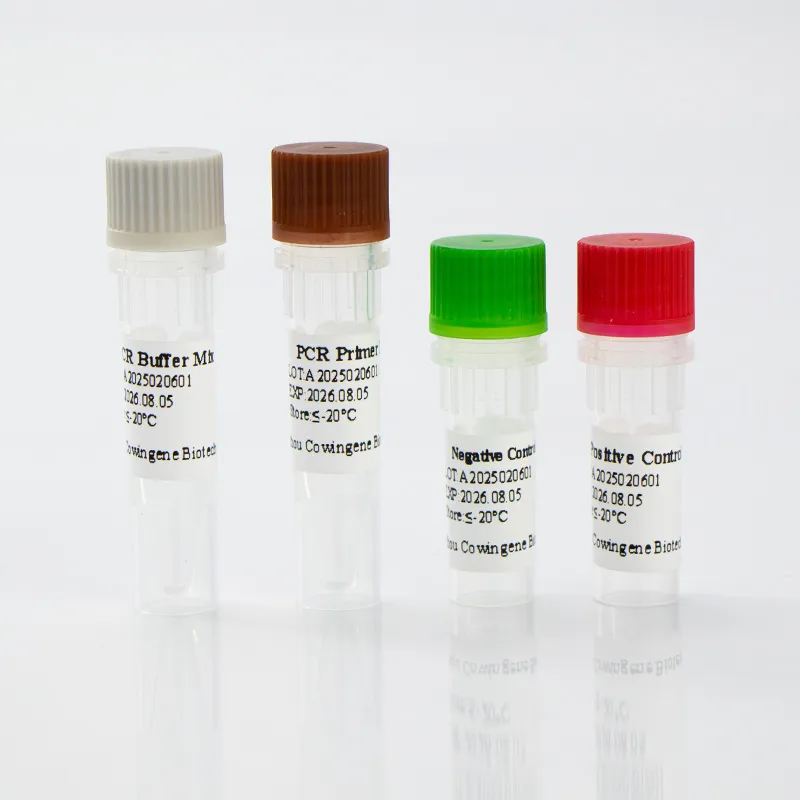
Frequently Asked Questions (FAQ) about Mycoplasma Pneumoniae Detection
-
Q1: What is the optimal sample type for mycoplasma pneumoniae detection using your kit?
A1: The Cowingene Mycoplasma Pneumoniae Detection Kit (Liquid) is validated for use with a variety of respiratory sample types, including nasopharyngeal swabs, throat swabs, sputum, and bronchoalveolar lavage (BAL) fluid. For optimal detection sensitivity, especially in early or mild infections, nasopharyngeal swabs or sputum samples are often preferred due to higher pathogen load. Proper sample collection and immediate transport/storage are crucial for accurate results. The kit's robust chemistry is designed to minimize inhibition from common components found in these clinical matrices, ensuring reliable amplification and detection of Mycoplasma pneumoniae DNA. We provide detailed sample collection and handling guidelines in our product insert to ensure consistent performance. Laboratories should ensure samples are collected with appropriate sterile techniques and transported in viral transport media (VTM) or equivalent nucleic acid stabilization buffers to preserve DNA integrity. The versatility in sample types makes our kit suitable for diverse clinical presentations and diagnostic workflows across various healthcare settings. Our technical support team can provide further guidance on specific sample processing protocols to optimize detection.
-
Q2: How does the Cowingene kit differentiate Mycoplasma pneumoniae from other Mycoplasma species?
A2: The Cowingene Mycoplasma Pneumoniae Detection Kit (Liquid) employs highly specific primers and a fluorescent probe that are meticulously designed to target a unique genomic region of Mycoplasma pneumoniae, such as the P1 adhesin gene or specific 16S rRNA gene sequences, which are distinct from those found in other Mycoplasma species (e.g., M. hominis, M. genitalium, Ureaplasma urealyticum) or other respiratory pathogens. This precise molecular targeting ensures high analytical specificity, minimizing the risk of false positives due to cross-reactivity. The specificity of our mycoplasma pneumoniae pcr test has been rigorously validated through extensive in silico analysis against public genomic databases and in vitro testing against a broad panel of clinical isolates and common respiratory flora. This stringent design and validation process ensures that only Mycoplasma pneumoniae DNA is amplified and detected, providing unambiguous diagnostic results crucial for targeted treatment and epidemiological studies. Laboratories can rely on the kit's ability to provide clear differentiation, a critical factor given the differing clinical implications and treatment strategies for various Mycoplasma species.
-
Q3: What are the storage conditions and shelf life for the Cowingene Mycoplasma Pneumoniae Detection Kit?
A3: To maintain optimal performance and extend the shelf life of the Cowingene Mycoplasma Pneumoniae Detection Kit (Liquid), it must be stored at -20°C or colder in a freezer upon receipt. The kit is stable for 12 months from the date of manufacture when stored correctly and unopened. Once individual reagents are thawed for use, it is recommended to keep them on ice or in a cooling block during preparation and assay setup. Repeated freeze-thaw cycles should be minimized to preserve reagent integrity and enzyme activity, which could impact the sensitivity and reliability of the mycoplasma pneumoniae pcr. The liquid format facilitates easy aliquotting if smaller working volumes are needed for high-throughput laboratories. After opening, proper handling practices, including aseptic technique and prompt re-storage at -20°C, are essential to ensure continued stability and performance. Detailed storage and handling instructions are provided in the product insert, which should be consulted for specific guidelines. Our packaging is also designed to withstand typical shipping conditions, ensuring product integrity upon delivery.
-
Q4: Is the kit compatible with automated nucleic acid extraction systems?
A4: Yes, the Cowingene Mycoplasma Pneumoniae Detection Kit (Liquid) is designed for broad compatibility with nucleic acid extracted using various methods, including most commercially available automated nucleic acid extraction platforms. This flexibility allows laboratories to seamlessly integrate our mycoplasma pneumoniae detection kit into their existing high-throughput workflows, optimizing efficiency and reducing manual handling steps. We recommend validating the compatibility with your specific extraction system in your laboratory, following the manufacturer's instructions for the extractor and our kit's guidelines for optimal nucleic acid input. While the kit's components are robust, the quality and purity of the extracted nucleic acid directly influence PCR performance. We provide general recommendations for compatible extraction chemistries (e.g., magnetic bead-based, column-based) in our technical documentation. For specific inquiries regarding particular automated systems, our technical support team is available to provide guidance and best practice recommendations based on their extensive experience with various laboratory setups. This adaptability ensures that the kit can be readily adopted by diverse diagnostic laboratories, from those performing manual extractions to fully automated high-volume facilities, without requiring significant workflow modifications.
The Future Trajectory of Mycoplasma Pneumoniae Diagnostics
The landscape of mycoplasma pneumoniae detection is continuously evolving, driven by technological innovations, emerging public health needs, and the imperative for faster, more comprehensive diagnostics. Current trends indicate a significant shift towards integrated, multiplexed molecular assays that can simultaneously detect multiple respiratory pathogens, including Mycoplasma pneumoniae, influenza viruses, RSV, and other bacterial co-infections. This multiplexing capability is crucial for differential diagnosis, particularly in cases where symptoms overlap, and for guiding appropriate antimicrobial or antiviral treatment. The future will likely see further advancements in point-of-care (POC) testing, bringing molecular diagnostics closer to the patient, enabling rapid bedside results in clinics, emergency rooms, and even remote settings. These POC platforms for mycoplasma pneumoniae pcr test will leverage microfluidics and miniaturized thermal cycling technologies to deliver PCR-level accuracy with minimal operator intervention and faster turnaround times. While the Cowingene Mycoplasma Pneumoniae Detection Kit (Liquid) offers a highly efficient laboratory-based solution, our research and development efforts are keenly observing and participating in the evolution towards these decentralized diagnostic modalities, ensuring future products meet the demands of an increasingly distributed healthcare system. Another critical area of development is the integration of artificial intelligence (AI) and machine learning (ML) for data analysis and interpretation. As diagnostic platforms generate vast amounts of raw data, AI algorithms can enhance the accuracy of result interpretation, identify subtle patterns indicative of infection, and even predict antimicrobial resistance profiles, though this is less common for Mycoplasma currently due to its unique biological characteristics. Furthermore, continued emphasis will be placed on enhancing the sensitivity and specificity of assays to detect even lower pathogen loads and to distinguish between colonization and active infection, a persistent challenge in Mycoplasma diagnostics. The development of quantitative mycoplasma pneumoniae pcr assays that provide a viral/bacterial load can also aid in monitoring disease progression and treatment response, offering clinicians a more nuanced understanding of the infection. The industry is also moving towards greater standardization of diagnostic workflows and reporting, which will facilitate interoperability between different laboratory systems and contribute to more robust epidemiological surveillance data globally. As molecular diagnostics become more accessible and affordable, the impact on public health will be profound, enabling proactive disease management and significantly reducing the burden of respiratory infections worldwide. Cowingene remains at the forefront of these advancements, continually investing in R&D to deliver next-generation diagnostic solutions that anticipate and meet the evolving needs of the global healthcare community, ensuring that our partners are equipped with the most advanced tools for accurate and timely pathogen detection.
References and Further Reading
-
Waites, K. B., & Talkington, D. F. (2004). Mycoplasma pneumoniae and its role as a human pathogen. Clinical Microbiology Reviews, 17(4), 697-728. https://doi.org/10.1128/CMR.17.4.697-728.2004
-
Loens, K., et al. (2012). Consensus guidelines for the detection and identification of Mycoplasma pneumoniae. European Journal of Clinical Microbiology & Infectious Diseases, 31(11), 3241-3252. https://doi.org/10.1007/s10096-012-1672-4
-
Centers for Disease Control and Prevention (CDC). Mycoplasma pneumoniae Infection. Retrieved from: https://www.cdc.gov/pneumonia/atypical/mycoplasma/index.html (Accessed on [Current Date])
-
ISO 13485:2016 Medical devices — Quality management systems — Requirements for regulatory purposes. Retrieved from: https://www.iso.org/standard/59752.html
Related PRODUCTS
-
Respiratory Pathogen Panel Kits: Rapid & Accurate Testing
NewsAug.11,2025 -
Reliable Chlamydophila Pneumoniae PCR Test for Accurate Diagnosis
NewsAug.09,2025 -
Accurate Chlamydia Trachomatis Detection | PCR Testing
NewsAug.08,2025 -
Respiratory Panel Lab Tests: Fast & Accurate Pathogen Detection
NewsAug.07,2025 -
Rapid & Accurate MRSA Detection Kit | Fast Results
NewsAug.06,2025






















